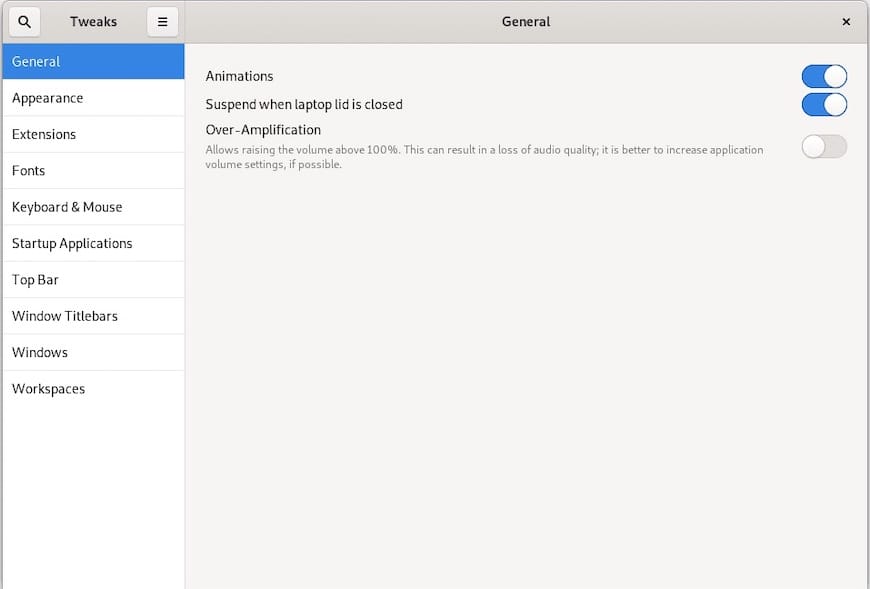How To Install Gnome Tweaks on Ubuntu 24.04 LTS

Ubuntu 24.04 LTS, the latest long-term support release of the popular Linux distribution, offers a stable and feature-rich operating system for users. With its user-friendly interface and extensive customization options, Ubuntu provides an excellent platform for both beginners and advanced users alike. One of the most powerful tools for personalizing the Ubuntu desktop is GNOME Tweaks, a versatile utility that allows users to fine-tune various aspects of their system’s appearance and behavior. Installing GNOME Tweaks on Ubuntu 24.04 LTS is a straightforward process that can significantly enhance the user experience by unlocking a wide range of customization possibilities.
What is GNOME Tweaks?
GNOME Tweaks, also known as GNOME Tweak Tool, is a powerful utility designed to provide users with advanced customization options for the GNOME desktop environment. It serves as a centralized hub for adjusting various system settings, themes, extensions, and more. While the default GNOME settings offer a solid foundation, GNOME Tweaks takes customization to the next level by exposing a wide array of hidden settings and features. With GNOME Tweaks, users can personalize their Ubuntu desktop to suit their preferences, optimize their workflow, and create a unique visual experience tailored to their needs.
Prerequisites
Before installing GNOME Tweaks on Ubuntu 24.04 LTS, ensure that your system meets the following requirements:
- Ubuntu 24.04 LTS installed and up to date
- Universe repository enabled
- Sudo access for running installation commands
Step 1: Open the Terminal
To begin the installation process, you’ll need to open the terminal. You can do this by pressing Ctrl + Alt + T on your keyboard or by searching for “Terminal” in the application menu. The terminal is a powerful tool that allows you to execute commands and perform system-level tasks, making it essential for installing software packages like GNOME Tweaks.
Step 2: Update Your System
Before installing any new software, it’s crucial to ensure that your system is up to date. Updating your system helps to maintain stability, security, and compatibility with the latest packages. To update your system, run the following command in the terminal:
sudo apt updateThis command will refresh the package lists and fetch information about available updates from the configured repositories.
Step 3: Install GNOME Tweaks
With your system updated, you can now proceed to install GNOME Tweaks. To do so, enter the following command in the terminal:
sudo apt install gnome-tweaksPress Enter to execute the command. The terminal will display the package details and ask for confirmation. Type “Y” and press Enter to continue with the installation. The installation process will download the necessary files and set up GNOME Tweaks on your system. Once the installation is complete, you’ll see a success message in the terminal.
Step 4: Launching GNOME Tweaks
After successfully installing GNOME Tweaks, you can launch it from the applications menu. Click on the Ubuntu logo in the top-left corner of your screen and search for “GNOME Tweaks” in the search bar. Click on the GNOME Tweaks icon to open the application. Alternatively, you can launch GNOME Tweaks from the terminal by typing gnome-tweaks and pressing Enter.
Upon launching GNOME Tweaks for the first time, you’ll be greeted with its main interface, which is divided into several sections for easy navigation.

Exploring GNOME Tweaks Features
GNOME Tweaks offers a wide range of customization options to personalize your Ubuntu desktop. Let’s take a closer look at some of the key features:
Appearance Settings
In the Appearance section, you can customize the look and feel of your desktop by changing themes, icons, and fonts. GNOME Tweaks provides a selection of pre-installed themes and allows you to easily switch between them. You can also install additional themes from various sources to further personalize your desktop.
Extensions Management
GNOME Extensions are small plugins that add new features and functionality to the GNOME desktop. GNOME Tweaks provides a convenient way to manage these extensions, allowing you to enable, disable, or configure them according to your preferences. You can discover and install new extensions directly from within GNOME Tweaks or through the GNOME Extensions website.
Keyboard and Mouse Settings
GNOME Tweaks offers various options to customize your keyboard and mouse behavior. You can adjust key repeat settings, cursor size, mouse acceleration, and more. These settings can help you optimize your input devices for a more comfortable and efficient user experience.
Startup Applications and Window Management
With GNOME Tweaks, you can manage startup applications and control how windows behave on your desktop. You can specify which applications should automatically start when you log in, adjust window focus settings, and configure workspace behavior. These options allow you to tailor your desktop environment to your specific needs and workflow.
Customizing the Ubuntu Desktop
Now that you’re familiar with the features of GNOME Tweaks, let’s explore some popular customizations you can apply to your Ubuntu desktop:
Changing Themes and Icons
To change the overall appearance of your desktop, navigate to the Appearance section in GNOME Tweaks. Here, you can select from a variety of pre-installed themes or install new ones. Simply click on a theme to apply it instantly. You can also customize the icon theme and cursor theme separately to create a unique visual style.
Adjusting Font Sizes and Styles
GNOME Tweaks allows you to adjust the font settings for your desktop. You can change the default font, adjust the font size, and apply font antialiasing for improved readability. Experiment with different font combinations to find the perfect balance between aesthetics and legibility.
Configuring Workspaces and Window Behaviors
In the Workspaces section of GNOME Tweaks, you can configure how workspaces behave on your desktop. You can enable dynamic workspaces, which automatically create new workspaces as needed, or set a fixed number of workspaces. Additionally, you can customize window behaviors, such as focus mode, titlebar actions, and window snapping.
Troubleshooting Common Issues
While using GNOME Tweaks on Ubuntu 24.04 LTS is generally a smooth experience, you may encounter a few common issues. Here are some troubleshooting tips to help you resolve them:
- Extensions not working: If an extension fails to function properly, ensure that it is compatible with your GNOME version. Disable and re-enable the extension or try restarting your system to see if the issue persists.
- Theme not applying: Make sure the selected theme is compatible with your GNOME version. Some themes may require additional components or engines to be installed. Check the theme’s documentation or seek assistance from the theme developer.
- Settings not taking effect: If a particular setting doesn’t seem to apply, try logging out and logging back in or restarting your system. Some changes may require a session restart to take effect.
Congratulations! You have successfully installed Gnome Tweak. Thanks for using this tutorial for installing the Gnome Tweak on Ubuntu 24.04 LTS system. For additional help or useful information, we recommend you check the official Gnome website.